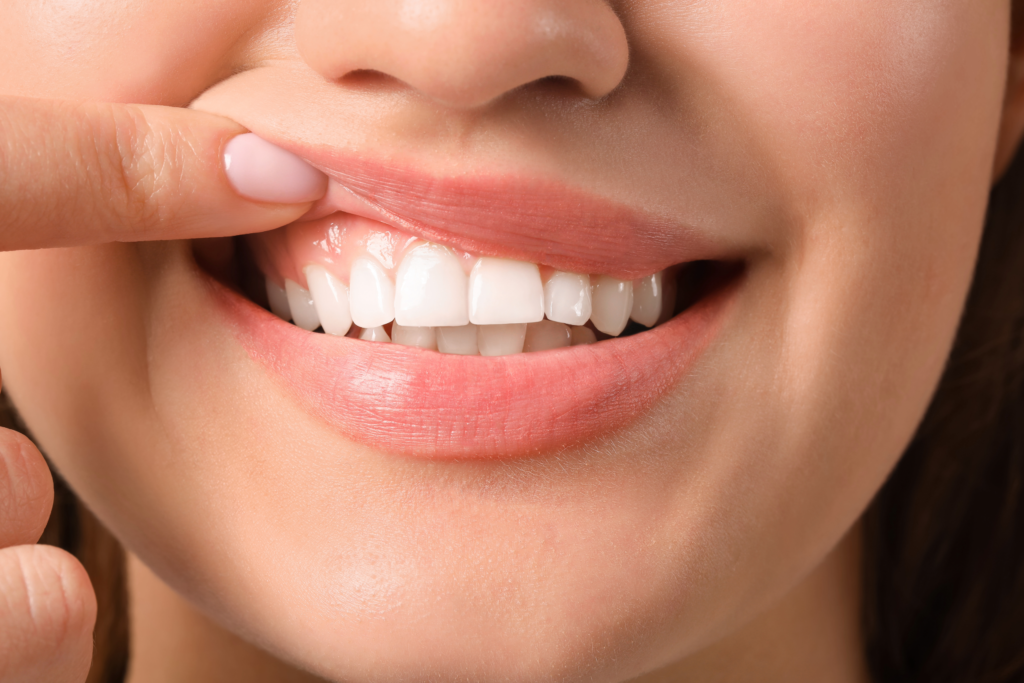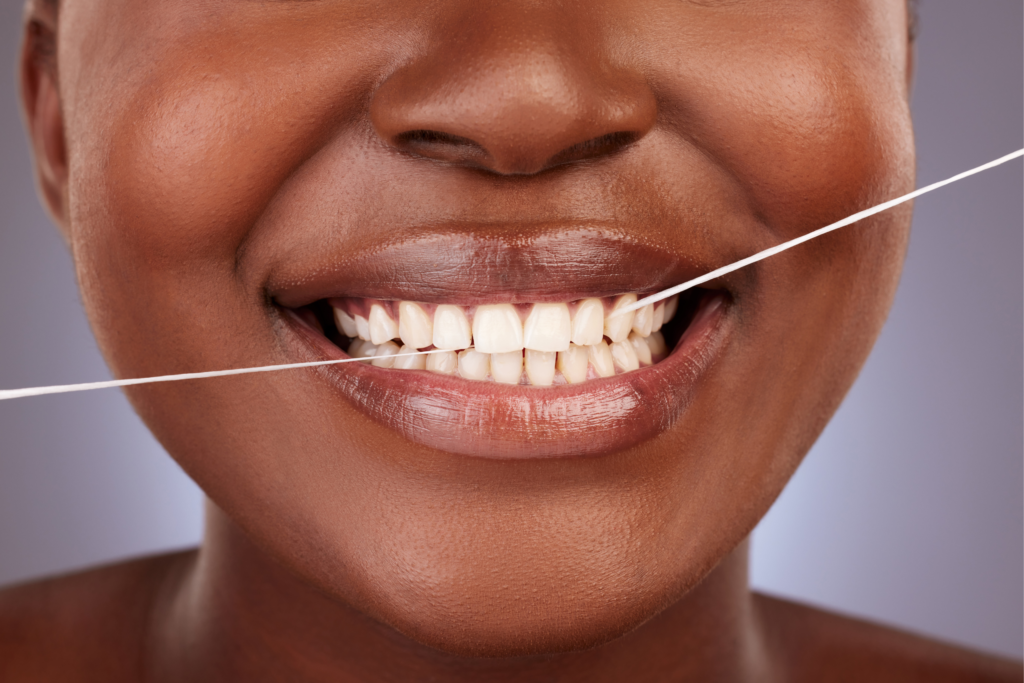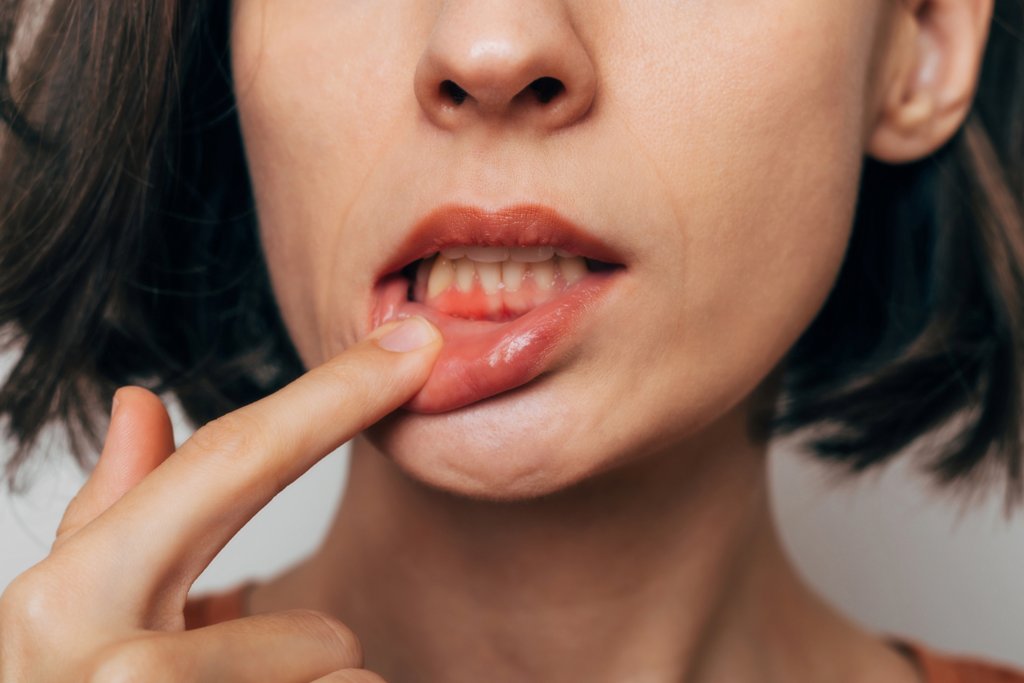
Healthy gums, healthy smiles!
Gum Treatments in Knutsford
Gum health is the foundation of a beautiful smile and overall oral health. Our advanced gum treatments are designed to prevent, treat, and manage gum disease, ensuring your gums stay strong and healthy for years to come.
What are gum treatments?
Gum treatments focus on addressing gum disease (gingivitis and periodontitis) and other gum-related issues.
These procedures target the infection, inflammation, or recession affecting the gums and surrounding bone.
By maintaining gum health, we protect the teeth, prevent further complications, and improve your overall oral well-being.

What to expect during your gum treatment
1.
Consultation
We begin with a thorough examination of your gums, using advanced tools to assess the severity of the issue. This may include measuring gum pockets and taking X-rays to check for bone loss.
2.
Treatment plan
Based on the assessment, we create a customised plan to address your specific needs, whether it’s scaling and root planing, laser therapy, or another procedure.
3.
Procedure
The chosen treatment is performed with precision and care. We prioritise your comfort, using numbing techniques if needed.
4.
Aftercare
After the procedure, we provide detailed aftercare instructions and schedule follow-up visits to monitor your progress. Ongoing periodontal maintenance is recommended to prevent recurrence.
The importance of gum health
why treating gum issues matters
- Prevent tooth loss: Gum disease is a leading cause of tooth loss in adults.
- Protect overall health: Untreated gum disease has been linked to conditions like heart disease and diabetes.
- Restore function: Healthy gums support strong teeth and a comfortable bite.
- Improve aesthetics: Treating recession or inflammation enhances the appearance of your smile.
- Freshen breath: Healthy gums help eliminate bad breath caused by bacterial buildup.

Signs you might need gum treatment
is your gum health at risk?
- Red, swollen, or bleeding gums.
- Persistent bad breath.
- Receding gums or teeth that appear longer.
- Loose teeth or shifting in their position
- Pain or discomfort when chewing.
If you experience any of these symptoms, early intervention is key to preventing further damage and restoring your gum health.

— frequently asked questions —
Quick answers to your questions
How is gum disease treated in its early stages?
Early-stage gum disease (gingivitis) is often treated with a professional cleaning and improved oral hygiene practices at home. Regular brushing, flossing, and dental visits can help reverse gingivitis before it progresses.
Is gum treatment painful?
Gum treatments are generally performed under local anaesthesia to ensure comfort. You might experience mild soreness or sensitivity afterward, which can be managed with over-the-counter pain relief and proper aftercare.
What are the signs I need gum treatment?
You might need gum treatment if you experience symptoms like red, swollen, or bleeding gums, persistent bad breath, receding gums, or loose teeth. These can indicate gum disease, which requires professional care.
Can receding gums grow back after treatment?
Gums do not regrow once they have receded, but treatments like gum grafts can restore the appearance and health of your gum line. Preventive measures and early treatment can stop further recession.
How long does gum treatment take?
The duration of gum treatment depends on the severity of the condition. Scaling and root planing may take one or two visits, while more advanced treatments, like surgery, may require multiple appointments over several weeks.
What should I do after gum treatment?
After gum treatment, follow your dentist’s instructions, which may include:
•Avoiding smoking and alcohol.
•Eating soft foods for a few days.
•Using prescribed mouth rinses.
•Maintaining good oral hygiene with gentle brushing and flossing.
